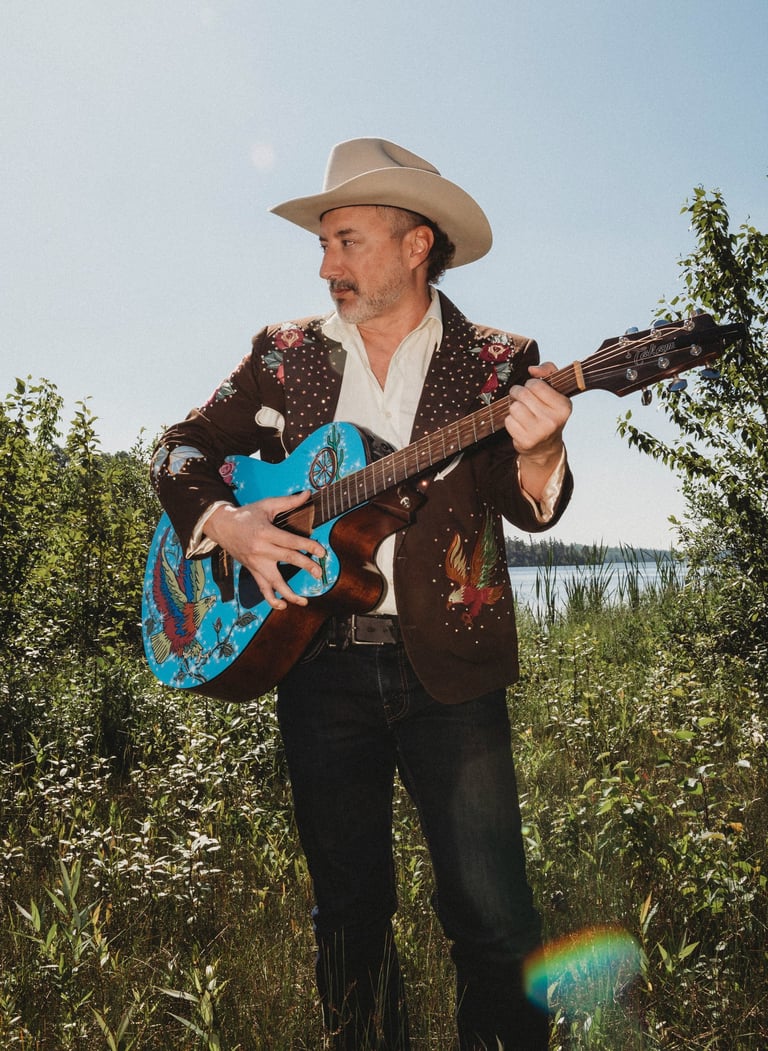Prairie Rebirth: Coming Home to a Changed Flin Flon
At the Living Books event in his hometown, Trubiak sat at a table, prepared to be an “open book.” His task was simple but powerful: talk candidly to strangers about his life as a gay man. Only weeks back in Flin Flon, he wasn’t sure what to expect. But what he received was overwhelming support.
“People kept saying, ‘We’re so happy to have you here. Flin Flon needs you,’” recalls Trubiak.
This warmth was a stark contrast to the fear and isolation he experienced growing up. As a child, Flin Flon felt stifling — focused on hockey, mining, and fishing. Trubiak didn’t fit in. Bullied and terrified of rejection, he made the heart-wrenching decision at age 12 to end his life. Miraculously, he survived. That moment marked a turning point.
Supported by his family, school counselors, and phone calls to Winnipeg’s Rainbow Resource Centre, he began a long journey of healing. Music became his escape. He sang privately, wrote songs, and began dreaming of a life far away from fear.
That dream carried him to Prince Albert, then Winnipeg, and finally Ottawa. There, he earned a Bachelor of Social Work from Carleton University and began performing publicly — releasing his debut indie-folk album, They Say I’m Different, in 2011. His song “Prairie Boy” offered an honest reflection of growing up queer in a place that didn’t accept him:
“Head hung down in shame, it’s plain and clear you ain’t welcome here.”
But life in Ottawa wasn’t without challenges. Trubiak struggled to find work in his field, even as he built a life with his partner. Then, a call from his sister changed everything — a social work job had opened in Flin Flon.
Initially, the idea of returning made him physically ill. But something shifted. Maybe, he thought, this was a chance to rebuild bridges, gain professional experience, and reconnect with family. He took the job — and Flin Flon, in turn, welcomed him back with open arms.
Within a week, he was invited to perform at Flonstock, the town’s music festival. There, he met a new generation of proudly out youth — something he never imagined during his own adolescence. He joined the folk band Five Easy Pieces, became a visible queer figure in his hometown, and offered support to local youth in the same way the Rainbow Resource Centre once helped him.
Now, Trubiak regularly gives back. He hands his office phone to young clients needing LGBTQ+ support. He speaks at schools to fight bullying. And most importantly, he makes music rooted in experience, identity, and hope — often inspired by the prairie sunsets he once thought he’d never see again.
“Professionally, I’ve never been more invigorated. Creatively, I’ve never been more alive,” he says. “I feel like a valued member of this community.”
Though he plans to return to Ottawa to be with his partner, CC Trubiak’s story is one of full-circle growth — a reminder that healing is possible, and that sometimes, going home is the most powerful act of all.


After years of big-city life in Ottawa, singer-songwriter CC Trubiak returned to Flin Flon — the small Manitoba mining town where he grew up — and found a community he could hardly recognize.
🗓️ Originally published in xtramagazine | May 9, 2013
By: Kaj Hasselriis